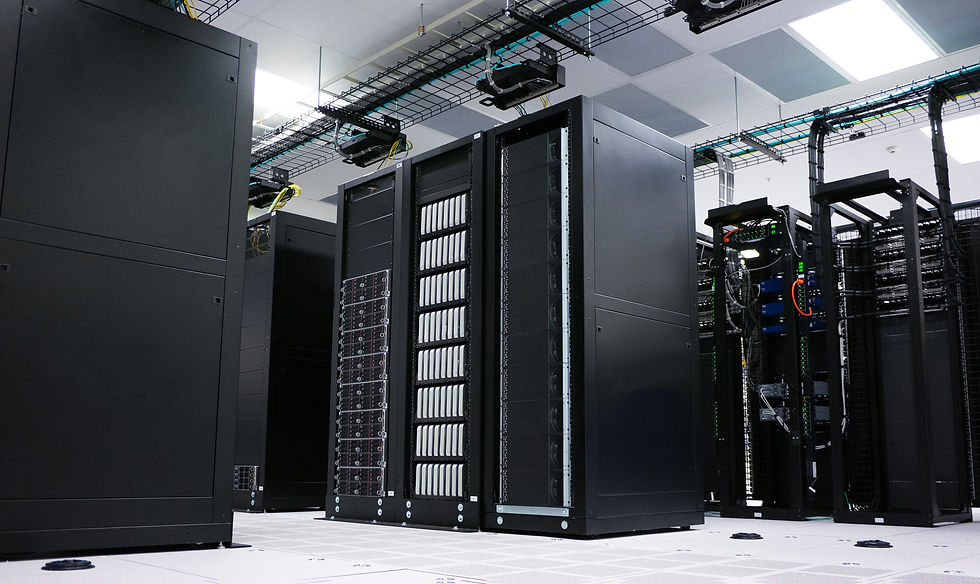Redundancy: The Power of back-up
- May 27, 2020
- 4 min read
Why Back-up?
Let's be honest; our computers are an integral part of our lives. They've replaced encyclopedias, photo albums, stereos, even the mailman. Backing up data is vital for individuals as well as businesses; lost information can cause a profit loss or worse, lead to business failure. Data back-up or data recovery can mean the difference between a slight computer setback and living through your own electronic apocalypse. Spy ware, Viruses, corrupted files, motherboards malfunctioning, the blue screen of death can all destroy our important data.

Hard Disk Failure:
There are two main types of hard drive failure - physical and logical. Physical failures are often due to malfunction of the electric motor or the drive itself - the moving parts; this can also occur from the computer being dropped, bumped or jostled while it is running. Logical failures come from corruption in the file system. If you've accidentally deleted an important registry entry or formatted the drive improperly, or if you have a nasty virus, hard drive problems will occur. The BIOS will recognize the drive, but it won't boot.
Virus and spyware corruption:
There are countless individuals and identity thieves that write viruses and spyware that automatically download software that you may think is safe. These corrupted files install and hide dangerous programs onto your computer. Once loaded, they start slowly destroying your computer or network, causing errors, freezes and data loss. Some of these are called key-loggers can even track your every keystroke, stealing your login and password information. A back-up process, if used properly, can restore data lost through virus infection when paired with reliable virus detection software and prior back-ups.
Human Element:
At one time or another, we have all pressed the Yes button when we meant to hit No. Accidentally clicked X instead of Minimize. We often share our computers with our business associates and family members, whether they are catching up on email while on a business trip, or playing online games at home, there is always a risk of files being moved or viruses being downloaded by these other users. The internet is a dangerous place and a careless user is very susceptible to online attacks. Simply clicking an online ad, or visiting a hijacked webpage can activate a malicious computer virus.

Events beyond your control:
Both natural and man made disasters inject a disconcerting variability into any application that requires large amounts of data storage. These include fire, floods, lightning and outright theft. After such an occurrence, how will your business survive? Many don't, according to statistics. Rebuilding vital billing or customer information would be very difficult from paper records, if not impossible. Back-up systems protect your data against such a disaster. If you are doing incremental daily back-ups, plan to do a complete backup weekly. Then store the back-up either in a fireproof safe or at an offsite location. If your system goes, your data stays — it may mean the difference between business as usual and bankruptcy.
Like preparing for a natural disaster, most of us understand how important data back-up is, but don't know where to start.
Your Options:
Most often utilized is Removable Backup Media, for personal computing, you could buy an extra large pack of DVD discs, back-up to an external hard drive, or perhaps it’s time to invest in an online back-up service.

Corporate Back-up options:
For your company and corporate data, “Tape back-up” is important to consider. Having tape back-ups will allow you to quickly rebuild your important data should a problem occur. If your data is truly critical tape is the last line of defense. Tape comes in many sizes, speeds and host bus types. Single unit tape drives and tape libraries give tape the flexibility to handle any size of back-up need. Back-up software is also an important consideration when defining how to best assure your data is safe and available when you need it.
Once, you have decided on the type of tape that fits your needs you have one more important decision to consider - Where best to store your tape media? Off premises fire-resistant safes offer the maximum protection for your tapes and valuable data. Media storage companies are a good storage solution and often offer the convenience of courier service to make off-site media storage easy and practical.

Problems with backing up to the “Cloud”:
The newest option offered to the consumer is online or “Cloud” back-up. There are inherent risks to backing up to a server in some corporate data center. Your account can be hacked! Yes, any cloud application can be broken into, even your personal iCloud account for your iPad. Remember, it is an online account and can be as simple as someone getting your email address and password.
Testing your Back-up:
Okay, so now you’re backing up on a regular basis. What happens when you need to use it? Do you know if your download bandwidth can handle it? Is your back-up corrupted? Have you ever tried loading that back-up? These are often items we don’t consider once we have created our scheduled back-up process.
Remember, after you back-up, always test your back-up!





Comments